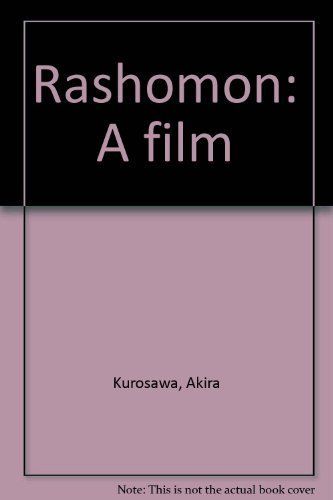
Rashomon A Film
Rashomon is one of the greatest of Japanese director Akira Kurosawa's films, the winner of the 1951 Venice Festival prize and the Academy Award for best foreign film in 1952. It features Toshiru Mifune, the best-known Japanese actor in the West, as the bandit, and accused rapist and murderer. At the beginning of the film, a woodcutter, priest, and commoner happen to meet at the ruined gate--Rashomon--outside the city of Kyoto. This tale of rape and murder is first seen through the eyes of the woodcutter and priest, both of whom have been touched by the events. The cynical, detached commoner, "everyman," listens to and comments upon their stories. The central section of the film, a series of flashbacks and tales within tales, consists of the same events retold by the husband (speaking through a medium, from the grave), the wife, the bandit, and the woodcutter. Each tells what happened--or possibly, what should have happened. The film deals with multiple truths; Richie summarized the director's point of view in the introduction: "the world is illusion, you yourself make reality, but this reality undoes you if you submit to being limited by what you have made." The sixth title in the Rutgers Films in Print Series and the first Japanese film, this volume brings together for the first time the full continuity script of Rashomon; an introductory essay by Donald Richie; the Akutagawa stories upon which the film is based; critical review and commentaries of the film; a filmography; and a bibliography. Donald Richie is the author of the definitive books in English on Kurosawa and Ozu. In addition, he is coauthor of the standard English-language history of the Japanese film and author or editorof several other books on the subject. He has also served as film critic for the Japan Times and as curator of film at the Museum of Modern Art in New York.
Reviews
Sarah Sammis@pussreboots